Last week I got a treat that was too good not to share; a chance to link up with my friend Col Dave Furness, USMC, the commanding officer of Regimental Combat Team 1 currently deployed to the southern Helmand. Col Furness was heading out to look over the positions of the 1st Battalion, 3rd Marines (Lava Dogs) commanded by LtCol Sean Riordan, who came through the Marine Corps Infantry Officer Course when Dave and I were instructors there. I needed to see the USAID FPO’s in that neck of the woods providing a perfect excuse to tag along.
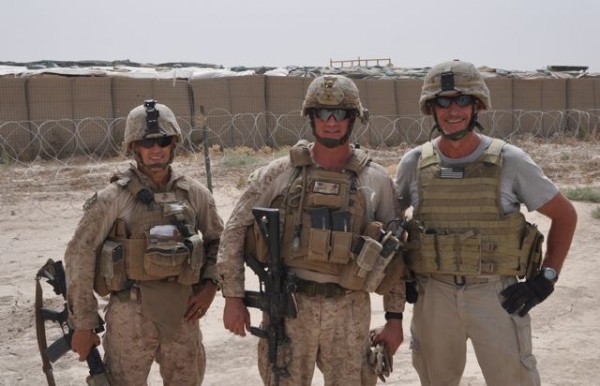
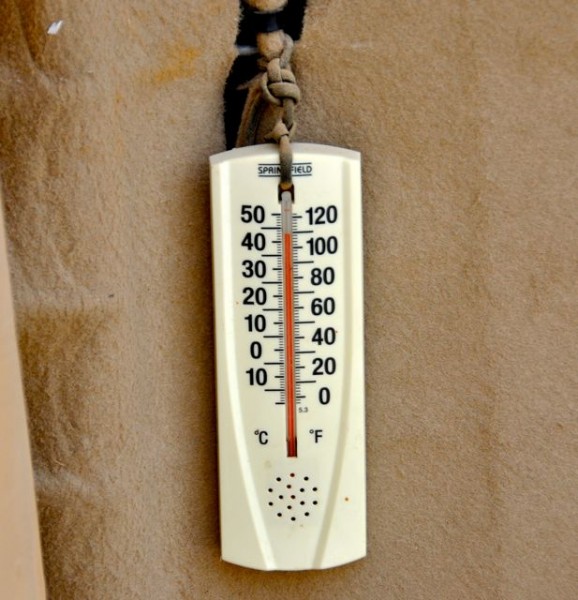
When Dave and Sean first showed up several months ago there was some of hard fighting to do to allow them to penetrate this far south but that turned out to be the easy part. Terrain and vegetation forced the Taliban into linear defenses. They tried minefields in front of their positions in to slow down the advancing Marines. But Marines have helicopters, so they would fix the villains with a frontal holding attack and then fly into their rear and chew them up. The Taliban were quick to adapt and countered with minefields and fighting positions to their rear too. The Marines started flying into their rear to fix them there allowing the Marines to flank the Taliban and pin them against the Helmand River. Fish in a barrel, except for the runners who manage to slip out, ditch their weapons and start walking away. Unarmed men do not fit the Positive Identification (PID) criteria and cannot be engaged. So the Marines let them skate.
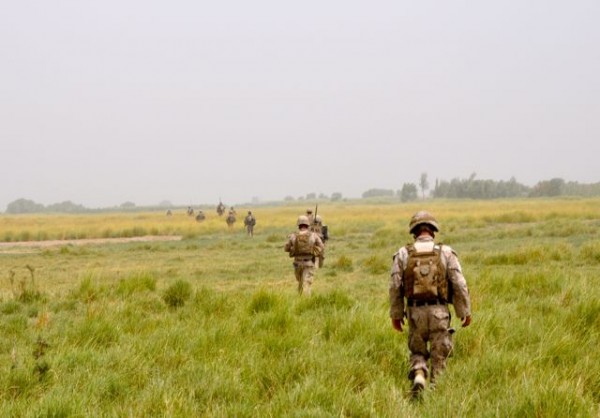
A few months back as they were pushing south the Marines would run into situations that (for guys like them) are a dream come true. An ANP commander pointed out a village where his men have hit 3 IEDs in as many weeks and each time the villagers poured out with AK’s to start a firefight. A few nights later the Marines blew a controlled detonation on the road to simulate an IED hit and when the villains rushed out with their flame sticks they ran into an ‘L shaped ambush’. No doubt (knowing the Lava Dogs) the villains also met Mr. Claymore, were introduced to the proper use of a machine gun section, and were treated to a 40mm grenade shower from those new and super deadly M32’s. Bad day. Not many survived that textbook lesson on the proper use of an ambush squad, but those days are long gone. The Taliban has run out of options in their limited playbook and have gone to ground but are still planting the IED’s and will still strike at what they consider soft targets but these attacks seldom rise above the level of being a minor nuisance.
These IED’s kill and maim vast numbers of innocent Afghans, yet rarely inflict casualties on ISAF units. The Marines still get hit by them but have deployed in such a way as to significantly reduce the vulnerability of their line infantry. Know how? By staying off the bog box FOBs and getting into little squad size combat outposts.
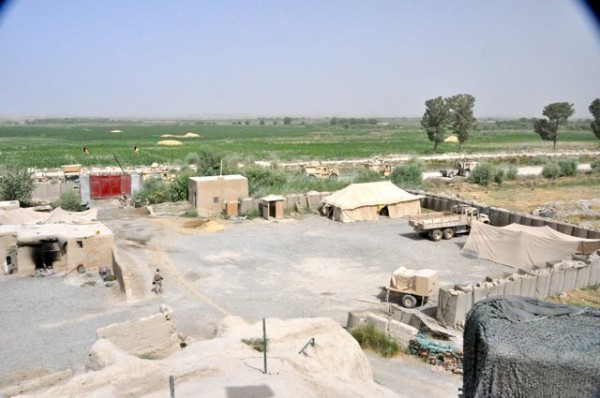
Southern Helmand Province is a long, flat narrow area, where the population is confined mostly to strips of land in close proximity to the Helmand River or one of its main canals. The Marines are able to spread out into COP’s (combat outposts) PB’s (Patrol Bases) and OP’s (observation posts) covering the entire AO (area of operation). These positions are manned by junior NCO’s and in one PB the senior Marine was a Lance Corporal. They move positions frequently; every time the Marines set up in a new one of any size local families immediately move as close to the positions as they are allowed and start building mud huts. For them a small band of Marines equals security and the implicit trust shown by this pattern of behavior is something in which the Marines rightly take great pride.
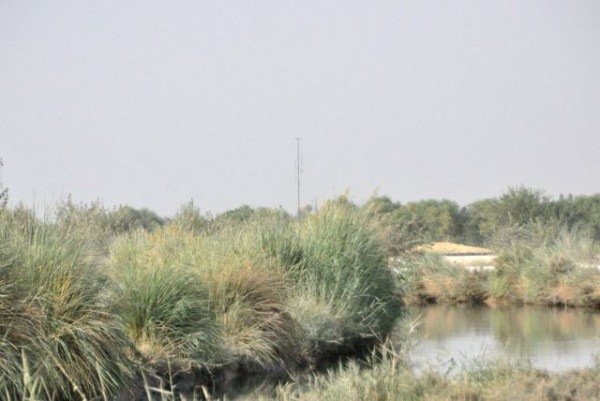
So if the Marines have been kicking ass out there, why is the title of this post “Attention to Detail”?
Brace yourself for a confusing yet illuminating segue.
Back in the early 90’s, LtGen Paul Van Riper interrupted one of our IOC field events because he had been directed to stage a capabilities demo for a visiting member of the British Royal Family. I think it was Prince Andrew, but may have that wrong. General Van Riper is probably best known as the man who destroyed the US Navy in a 2002 “free play” staff exercise. But his reputation back then was as a general who would go” high order” at the slightest provocation.
I recall when he showed up outside the old combat town in Quantico; my fellow instructors and I lined up to render him a salute but for some reason I cut my salute early. He glared at me as if I were a putrid urine specimen. And not just a casual glare – he held it for what seemed like hours as my face worked its way through the various stages of red finally topping out at crimson. I remember observing full Colonels on the side of the road picking up trash (they had apparently been told to have their Marines get this done the day before but didn’t- so now they had to do it). We saw those Colonels because we had to go back and get clean uniforms for our students and ourselves – after five days in the field we were pretty stinky and no member of the Royal Family was going to be forced to deal with stinky Marines.
The General came up with a slick ambush involving a SPIE rig extract which would deposit our students in a LZ just down the road where the Prince could shake hands and take photos. We rehearsed for two days all the while correcting what we thought were very minor issues, but they were defects Gen Van Riper found intolerable. The demonstration came off without a hitch – which we expected because we (the IOC staff) were good at this sort of thing. But we were forced to recognize the 500 rehearsals Gen Van Riper had insisted on had served us well. We had thought General Van Riper a lunatic; his obsessive attention to detail some sort of sick personality quirk but it turned out he was showing us what had to be done for a mission of this nature.
We were wrong to label Van Riper as anything other than a consummate professional despite his prickly personality.
Here’s why: attention to detail saves lives. It is not something that one can turn on one moment and off the next. It is a habitual behavior borne of years of practice, and even more years of serious ass-chewing from those above you who know the business. We had always known attention to detail was critical, but had applied it only when practicing the deadly arts of war. We were masters at running complex live fire and maneuver training which required considerable attention to detail to pull off. However, in all honesty, we just didn’t apply it in the garrison or classroom setting. As young officers we thought we could turn it on in the field because that’s where (we thought) it was important. What Gen Van Riper and the many others like him were demonstrating to us was that we were wrong – you can never turn off attention to detail.
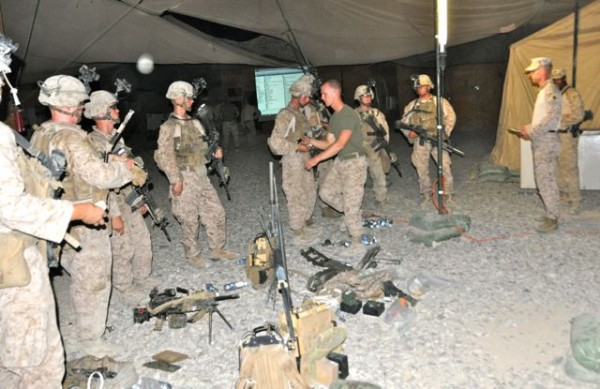
Our first stop on our tour of 1/3’s area was a newly established logistics hub, which was a pigsty. I had never seen Dave ‘channel’ Gen Van Riper before, but I have now, and man, it is a sight to behold. He went high order, repeating over and over that a unit that can’t keep its own little camp in order is a unit unfit for combat operations outside the wire. “If the little things are kicking your ass, how the hell do you expect me to believe you can accomplish the big things I sent you out here to do?” I’m paraphrasing here because between Dave and SgtMaj Zickefoose, so much ass was being chewed that I thought it best to go hide in the MRAP and didn’t even attempt to write down what they were explaining in the harsh unequivocal terms of infantry Marines.
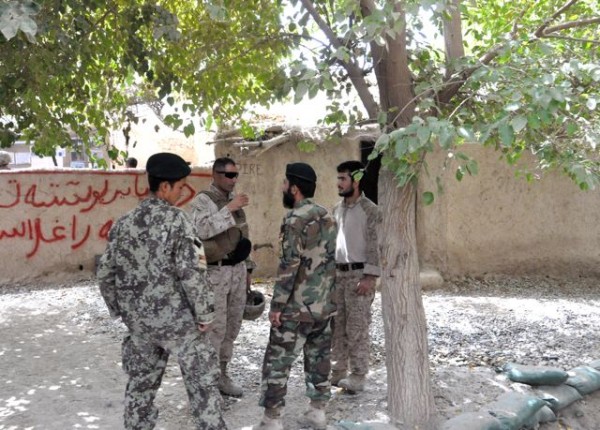
There was good reason for Dave’s rant. The active fighting has been long over, but the dying continues due to IED strikes and the most important factor in countering IED’s is attention to detail coupled with strict adherence to procedure. As we visited every little PB, COP, and OP in the Lava Dogs AO (there are over 50 of them now), we found that the logistics hub was the exception – each base and outpost we visited after that was spotless (or as spotless as things can be in the desert). Although the Lava Dogs had mastered the art of maintaining a clean and organized patrol base, Dave and the SgtMaj continued to pound home their message: the fighting is over, we have tried every trick in the book to lure them into fighting us, but they won’t play anymore and have gone to the IED. The procedures for mitigating IED’s are well established and well drilled. They cannot be deviated from, no matter how hot it is, how long you’ve been out, or how far away the next available EOD teams may be. We must follow the procedure to the letter, no exceptions, because the lives of your fellow Marines depend on it.
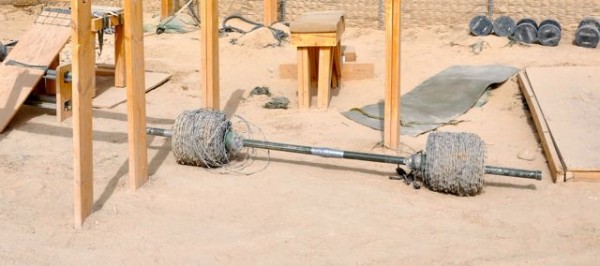
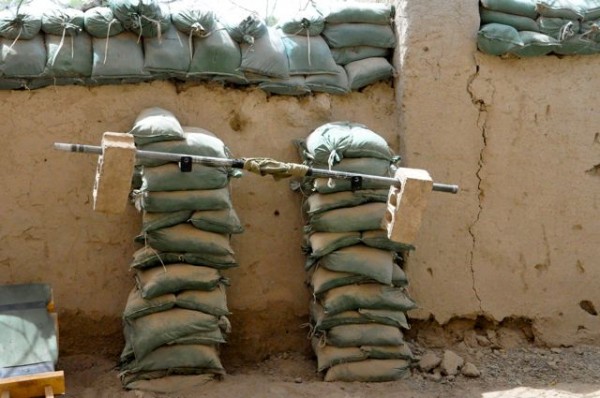
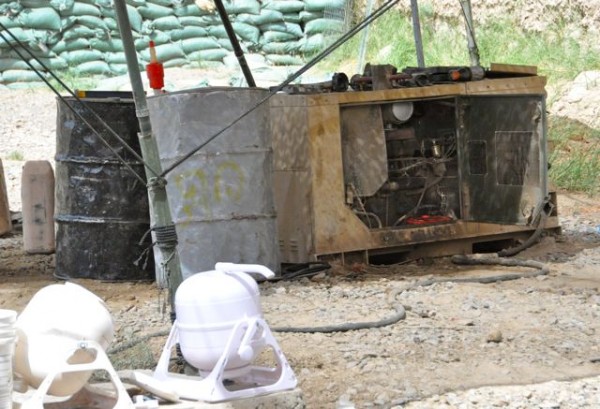
Military life is often plagued by weak martinets who make the lives of their troops a burden by insisting every rule and regulation be followed to the letter. They use rules and regulations to cover for a lack of confidence in their professional ability to make good decisions; so when confronted with problems they make no decisions, hiding instead behind the letter of the law contained in the UCMJ. Good commanders insist on attention to detail and following established procedures because paying attention to detail needs to be habitual for it to be effective – you just cannot turn it on and off. To quote Col Furness: “Attention to detail and strict adherence to orders is what keeps men alive.” But then, he’s no martinet. As an example: despite rule 1 (no keeping local dogs as pets) you will find dogs on every little base Dave owns. I’m not sure he knows they are there because he tends not to look at or notice them as he walks into these small, clean outposts.
The local dogs are good for morale, can take the heat better than military working dogs, and have over and over saved mens lives when they accompany their American friends on patrols. Somebody gets them flea collars, a rabies shot and de-wormed and from that point on they are part of the tribe. A martinet would put an end to that nonsense instantly because it is against the rules – benefits to the men and mission be damned. But a commander who understands Napoleon’s maxim “The moral is to the physical as three is to one” he’ll find a way to work around problems like this by applying the spirit, not the letter of the law. Besides, the Marines broke the code on local dogs in Iraq so seeing them on every post here is really no surprise.
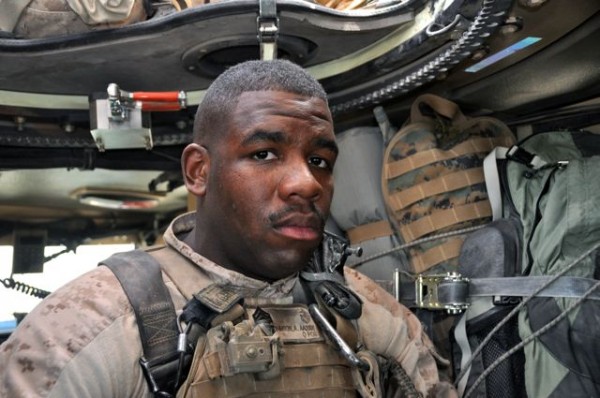
As did Gen Van Riper all those years ago, Dave continues to pound into his Marines’ heads the need for attention to detail. When “The Ripper” would rip into us we didn’t have the advantage of combat experience so the context of these lessons were lost on us. Maybe I shouldn’t say “us” but they were on me. I think it was Dave Furness who told me the first time you lose a Marine because he was doing something he shouldn’t or had on him something which he shouldn’t (like an ipod or cell phone that suddenly rings at the worst possible moment) you learn instantly to go Van Riper on them because if you don’t, you’ll lose more in the same manner and that will break you.
Killing the Taliban is the easy part of this conflict because, as I’ve pointed out about 100 times in past posts, they just plain suck at fighting and we have become very proficient in targeting and killing people. Getting the Marines to treat the local people with respect and project friendship and warmth is also easy. The Marines with RCT 1 are in close contact and living with these people 24/7. It is in their nature to smile, give kids candy, treat the injured etc… The only consistent problem the Marines have with the local population is their treatment of dogs and other domestic animals. Yet despite this, the Marines cowboy up, doing their duty as good troops always do.
The only thing the local people of southern Helmand are concerned about, when it comes to Marines, is that they are going to leave. They would much rather see them stay – I hear this from the locals everywhere I go in this Province.
Now the hard part of the job is maintaining focus day after day in the heat, dust, and wind of the Helmand River Valley. This is where experienced combat leadership comes into play. Getting face to face with Marines to hammer home over and over that they must maintain their vigilance, that they can’t get sloppy just because the Taliban won’t play anymore. This is when the hammer has to come out because it is human nature to slack off when the pressure is off. Well, the pressure may be off from the Taliban but it certainly isn’t from the RCT 1 command group. Which is exactly how it should be.
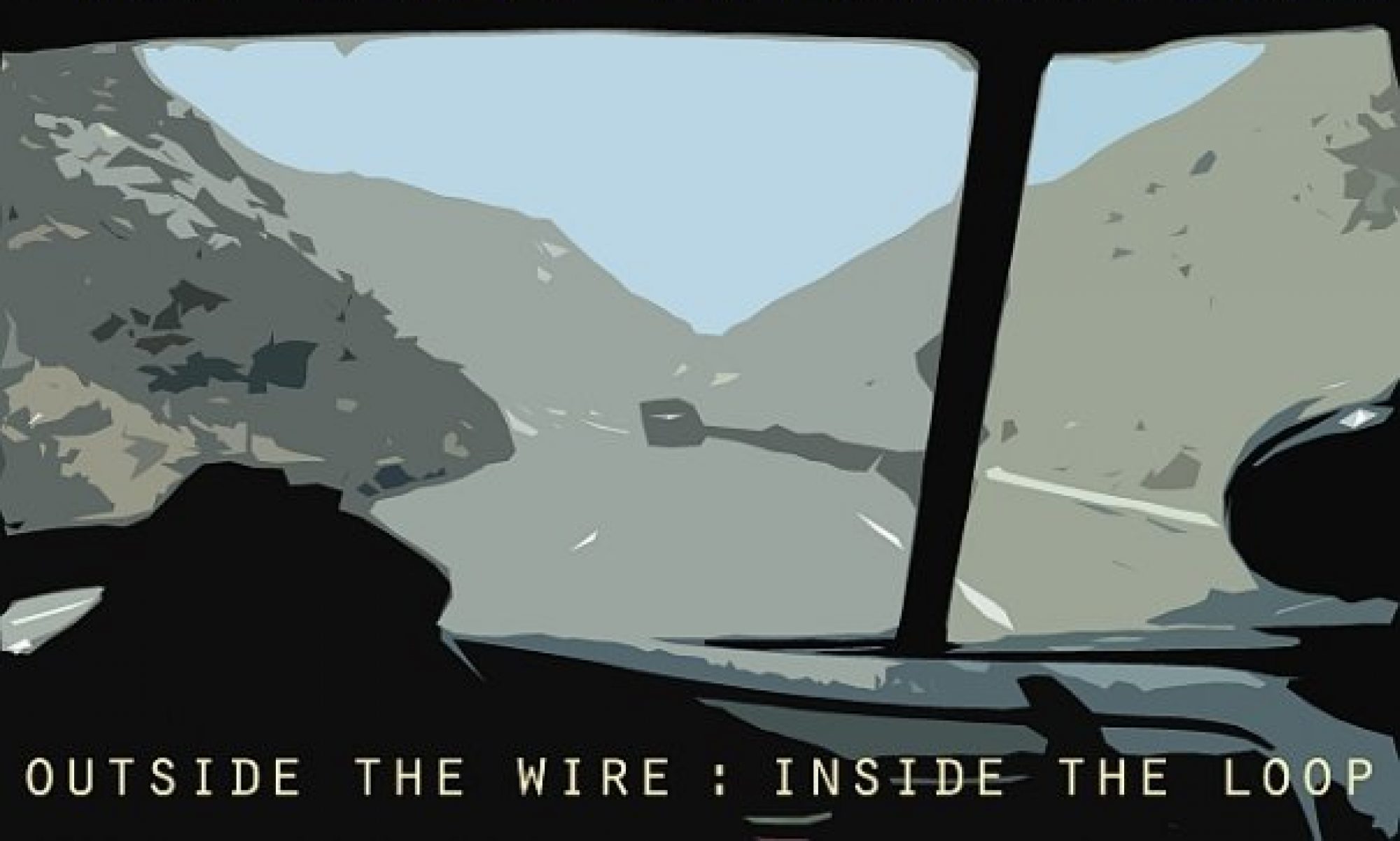
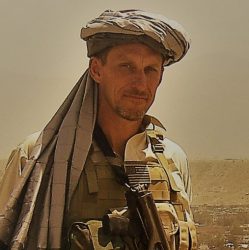

Good to see you back, even if it’s just a cameo appearance. Outstanding post.
1. Three peers I knew: Christmas, Stackpole and Van Riper.
2. All were highly decorated junior officers and all achieved the rank of LtGen.
3. People downtown are still in shock about LtGen Van Riper’s reaction, when they overturned the results of Millenium Challenge 2002.
4. That was compounded by the Iranians showing the tip of their naval sword, swarming one of our vessels in January, 2008.
5. On a personality basis, thought he was the least likely of the three to achieve high rank.
6. Most of the high rankers are at least as facile at political warfare as they were in the trenches. Credit the USMC on LtGen Van Riper!
7. In poor units, attention to detail comes from the bottom up.
8. A simple matter of survival.
9. Know a fair amount about that, am sorry to say.
10. Just putting on the uniform immerses you in a world of details. Exposure to combat intensifies that.
11. People exiting the service find those skills give them a leg up on their co-workers -and drive their spouses nuts.
12. As in, “What time is it?” “It’s 3:24PM” “!!!”
13. You are kinder to the Brits that most of the Marines I have talked to who replaced them in Helmand.
14. The consensus was that they made fine targets.
15. Army types, associated with Operation Charge of the Knights in Iraq (vic. Basra in 2008) had similar or less complimentary opinions.
16. Am not so much in the trashing allies business as am coming to the conclusion that most of our allies are getting a major ride on our coat tails.
17. Two things about that: they are ingrates and we are not going to continue securing the free world.
18. They did not support us voluntarily in either location -they were arm twisted into doing so. Exclude the Australians from that assessment. Those SOB’s would pay to go to war…
19. Counterpoint is our supporting the European foolishness in Libya.
20 Am sure the Georgians are impressed by all these goings-on.
21. Enough ranting. Take care.
V/R JWest
Good to see you back Tim! Great post and it sounds like the Marines are doing good things out there.
another great post. Thanks for keeping the light on the darkness.
Thoroughly enjoyed this post Tim, as I have E2’s posts in your stead… Many points well taken in all recent posts;
“… attention to detail saves lives. It is not something that one can turn on one moment and off the next. It is a habitual behavior borne of years of practice and even more years of serious ass chewing from those above you who know the business….you can never turn off attention to detail”.
Having been raised in the domicile of a career Marine Corps officer, I witnessed this on a daily basis, and I was ingrained with the same mentality (…which I’m sure was at least half his goal). When the house was cleaned every Saturday morning, commencing at 0630 sharp, you didn’t clean around furniture. Furniture was moved, and all areas were thoroughly cleaned before returning said furniture to its designated location. You did not dust just the outside of lamp shades, you did the insides as well… I could go on and on, especially with tales of ass chewings related to attention to detail. We (boys) always felt we took the brunt of his Marine mentality. The Marine Corp only had to deal with him 8-10 hours a day, we got the other 14-16 hours.
I know these “domestic examples” may sound trivial to some in comparison to life and death situations, but my point is one of concurrence with the idea that attention to detail is a “habitual behavior borne of years of practice”. That is indeed a fact, and I am glad to read that the practice is well entrenched from the top down.
As an aside, your photo “heading out to an isolated patrol base” is mesmerizing. I totally agree with your assessment.
As always, safe travels to you and your team.
BS
Its ALL about attention to detail, thanks babaT for a great post, and getting back on the blog. And creds to E2 for posting as well… Stay safe brother !
Prior to your retirement from the Afghan theater, my question is directed to those medical personnel who were killed some time back that you personally knew:
Who did this? Were they caught/killed? If not, why not?
Tim, glad to see you’re still above dirt. I enjoyed reading this post and hope you and all of the Marines stay safe. This story “Attention to detail” will benefit me and others in Law Enforcement to stay on there “A” game and save lives back home. Much Appreciation to you and our Marine brother!! KC
Well it’s about time. We were waiting for this blast of wind. I will not say hot air, however that is the expression the Marine gave you when you told him you could shoot that MK19 better than him. Priceless.
Yes, training, over and over again. I would think a lack of daily training would be the result of poor leadership, and also could lead to a lack of morale. And worse, haphazard response when the need is at its greatest.
Great point!
http://israel-commentary.org/?p=1293
USMC training in Israel.
ABOUT
TIME,
R